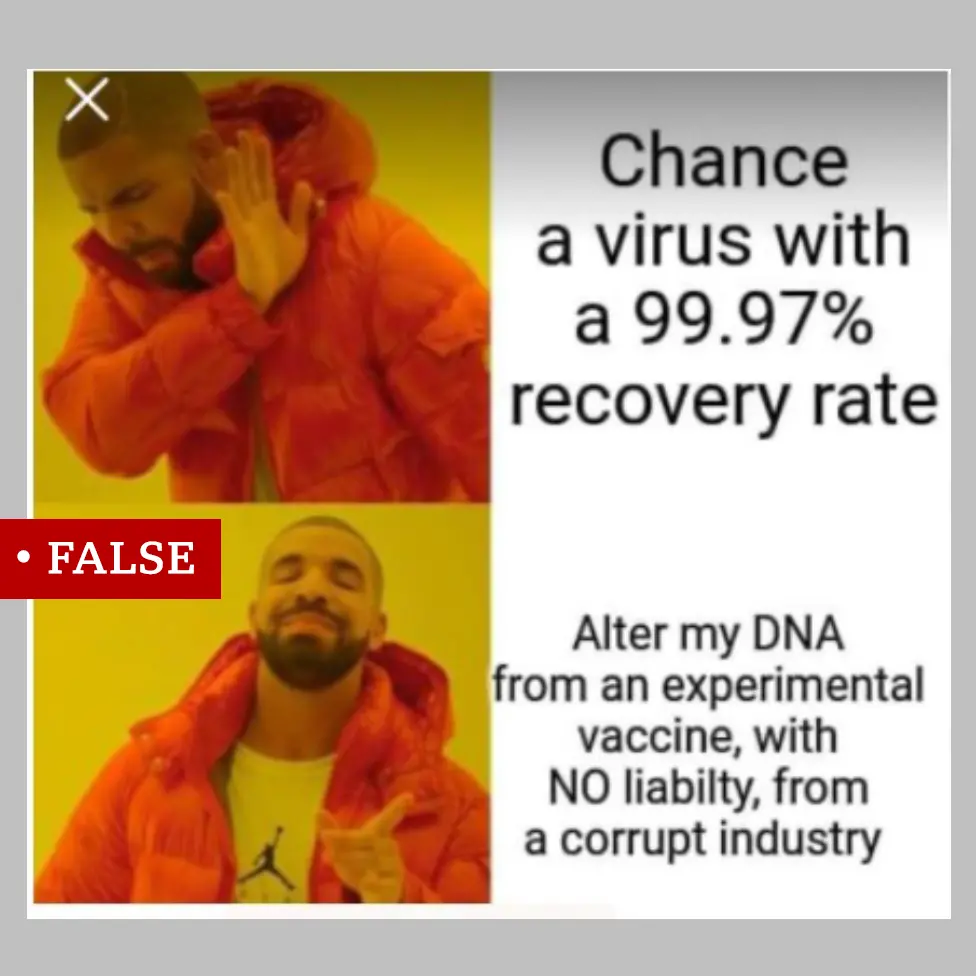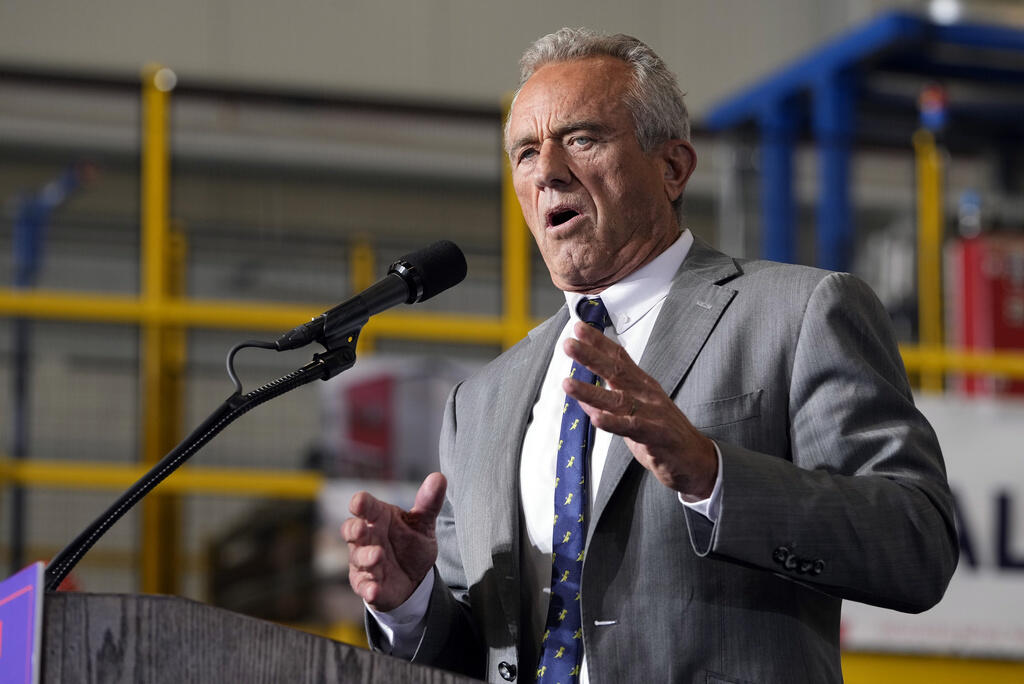Debunked Autism-Vaccine Link Under Scrutiny: HHS Taps Anti-Vaccine Advocate

Table of Contents
The Scientific Consensus: No Link Between Vaccines and Autism
The overwhelming scientific consensus is clear: there is no link between vaccines and autism. Decades of research, involving millions of children, have consistently failed to establish any causal relationship. Landmark studies, such as those examining the MMR (measles, mumps, and rubella) vaccine, have repeatedly refuted the claims linking it to autism spectrum disorder (ASD).
- Multiple large-scale studies have found no correlation. These studies, utilizing rigorous methodologies, have consistently shown no association between vaccine administration and the development of autism.
- Peer-reviewed journals consistently reject the hypothesis. The scientific community, through its peer-review process, has thoroughly vetted the evidence and found no credible support for the autism-vaccine link.
- Leading health organizations (CDC, WHO) firmly state there's no link. The Centers for Disease Control and Prevention (CDC) and the World Health Organization (WHO), among other prominent health bodies, unequivocally state that vaccines are safe and do not cause autism.
- Understanding Correlation vs. Causation: It's crucial to differentiate between correlation (two things happening at the same time) and causation (one thing directly causing another). While some studies may show a temporal correlation between vaccination and autism diagnosis, this does not imply causation. Autism symptoms often emerge around the same time as routine vaccinations, leading to a false association.
The Persistence of Misinformation and Vaccine Hesitancy
Despite the scientific consensus, misinformation about the autism-vaccine link persists, significantly impacting vaccination rates. This misinformation spreads rapidly through various channels, particularly social media and anti-vaccine advocacy groups.
- The impact of celebrity endorsements of anti-vaccine views. High-profile individuals voicing anti-vaccine sentiments can significantly influence public opinion, despite lacking scientific expertise.
- The role of misinformation campaigns and conspiracy theories. Deliberate campaigns spreading false information, often fueled by conspiracy theories, contribute to vaccine hesitancy.
- The consequences of decreased vaccination rates. Lower vaccination rates lead to increased susceptibility to preventable diseases like measles, mumps, and whooping cough, resulting in outbreaks and potential fatalities.
- Psychological factors contributing to vaccine hesitancy. Fear, anxiety, and distrust in authority figures can contribute to vaccine hesitancy, highlighting the need for empathetic and evidence-based communication strategies.
The HHS Appointment and Public Backlash
The recent appointment of a known anti-vaccine advocate to a position within the HHS has sparked significant public outcry and controversy. This decision has raised serious concerns about the potential impact on public health policy and the erosion of public trust in health organizations.
- Statements from leading medical professionals criticizing the decision. Numerous prominent doctors and scientists have publicly criticized the appointment, expressing concerns about the potential influence of anti-vaccine views on health policy.
- Public outcry and protests against the appointment. The appointment has fueled protests and widespread public disapproval, highlighting the strong feelings surrounding this issue.
- Potential impact on public trust in health organizations. The decision undermines public trust in the government's commitment to evidence-based healthcare and vaccine safety.
- Political implications and the role of lobbying efforts. The appointment highlights the influence of lobbying efforts and political considerations in shaping public health policy, potentially prioritizing ideology over scientific evidence.
Addressing the Concerns: The Importance of Transparency and Public Health Education
To counter vaccine misinformation and rebuild public trust, a multi-pronged approach is crucial. This includes improving communication from public health officials, investing in comprehensive public health education, and effectively utilizing social media to combat misinformation.
- Improved communication strategies from public health officials. Clear, concise, and accessible information from trusted sources is vital.
- Investing in public health education programs. Comprehensive programs targeting various demographics are essential to dispel myths and build confidence in vaccines.
- Utilizing social media platforms effectively to combat misinformation. Proactive strategies are needed to counter false narratives and promote accurate information.
- The importance of addressing parental concerns and anxieties. Open dialogue and addressing parental anxieties about vaccine safety are paramount in building trust.
Conclusion: Moving Forward: Addressing the Autism-Vaccine Link Myth
The evidence overwhelmingly refutes the autism-vaccine link. However, the persistence of misinformation, fueled by anti-vaccine advocacy and amplified by social media, remains a serious threat to public health. The recent HHS appointment further underscores the challenges in navigating this complex issue. It is crucial to prioritize evidence-based policies, transparent communication, and robust public health education to combat vaccine hesitancy and protect community health. Don't fall prey to the debunked autism-vaccine link myth; learn the facts from reliable sources like the and the and protect yourself and your community by getting vaccinated.

Featured Posts
-
 February 20 2025 Activities For A Happy Day
Apr 27, 2025
February 20 2025 Activities For A Happy Day
Apr 27, 2025 -
 Hhs Investigation Into Autism Vaccine Link Concerns Raised Over Anti Vaccine Activist Appointment
Apr 27, 2025
Hhs Investigation Into Autism Vaccine Link Concerns Raised Over Anti Vaccine Activist Appointment
Apr 27, 2025 -
 Mubadala Abu Dhabi Open Rybakina Wins In Dramatic Three Set Battle Against Jabeur
Apr 27, 2025
Mubadala Abu Dhabi Open Rybakina Wins In Dramatic Three Set Battle Against Jabeur
Apr 27, 2025 -
 Resistance To Ev Mandates Intensifies Among Car Dealerships
Apr 27, 2025
Resistance To Ev Mandates Intensifies Among Car Dealerships
Apr 27, 2025 -
 Blue Origins Launch Abort Details On The Subsystem Malfunction
Apr 27, 2025
Blue Origins Launch Abort Details On The Subsystem Malfunction
Apr 27, 2025
